„EXPERTISE IS OUR STRENGTH“
We work on a project and innovation base. We put together the best experts from universities, research organisations and the public and private spheres.
NEWS
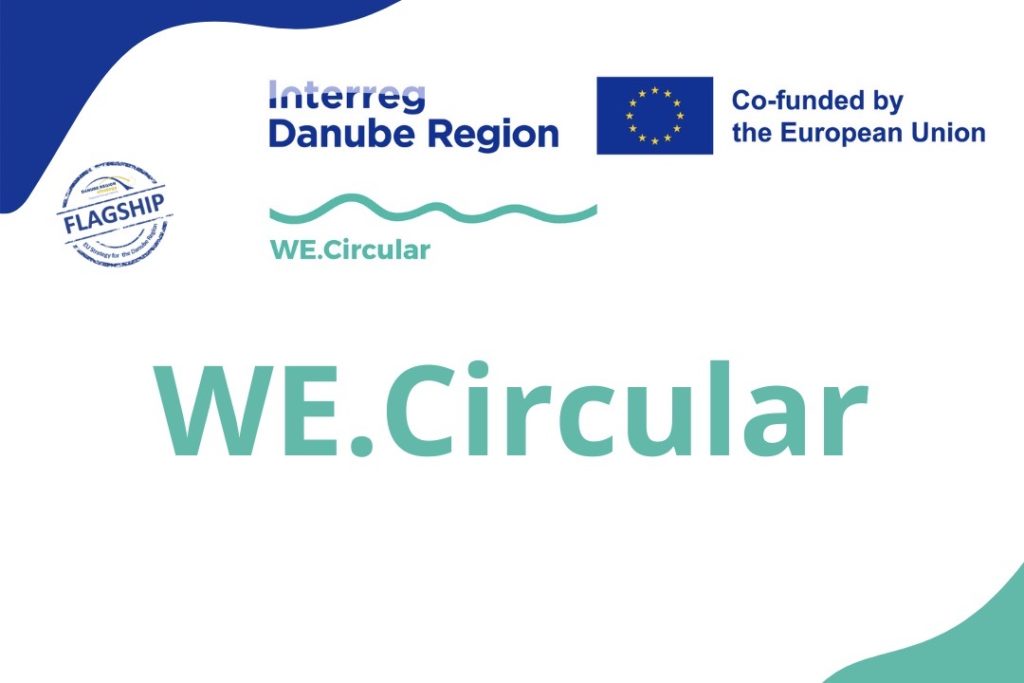
WE.Circular: Boosting digital and industrial capacity for sustainable circular transition of women entrepreneurs in the Danube Region
Solution period: 1.1.2024-30.6.2026
Contract authority: Interreg Programme Danube Region 2021–2027
Realizator: IREAS, Institute for Structural Policy, o.p.s.
Registration number: DRP0200020
Contact: Martina Kubíková (kubikova@ireas.cz), Vojtěch Dvořák (dvorak@ireas.cz)
The acronym WE (Women Entrepreneurs) stands for the women entrepreneurs that the project aims to support. The main objective is to support this target group in the transition to the circular economy through a wide range of activities. Despite efforts to support women entrepreneurs (WE), only 25.6% of entrepreneurs in the Danube Region are women. The gender gap exists in all sectors, including those related to the circular economy. While the COVID-19 pandemic has accelerated the development of the digital economy, it has also widened the existing digital skills gap. The lack of digital skills is creating new inequalities. The project therefore aims to improve the skills of women entrepreneurs in the Danube region for business development in the context of the circular economy, including business and digital skills.
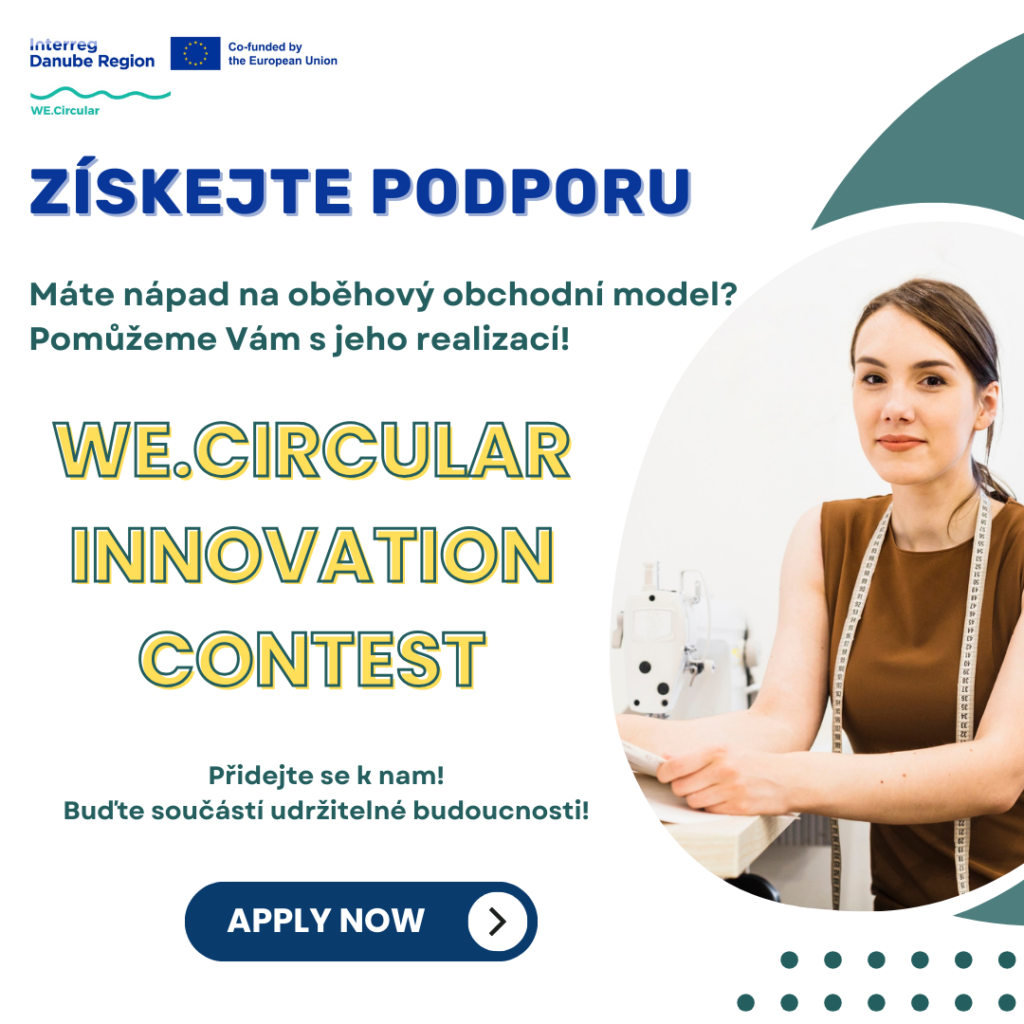
Unleashing Innovation: Join the WE.Circular Innovation Contest!
Are you a woman entrepreneur with a vision to transform the economy and protect our planet? The WE.Circular Innovation Contest is your opportunity to make an impact! 🌍✨
Organized by the WE.Circular project, co-funded by the Interreg Danube Programme, this initiative seeks to empower women entrepreneurs to drive economic growth and environmental sustainability across 12 Danube Region countries.
What’s in It for You?
🌟 Expert guidance to transform your business ideas into reality
🌟 Accelerated implementation of innovative circular solutions
🌟 International visibility and expanded networking opportunities
Who Can Apply?
Women entrepreneurs with small or medium-sized enterprises (SMEs) that:
✅ Operate in one of the listed Danube Region countries – Austria, Bulgaria, Bosnia and Herzegovina, Czech Republic, Croatia, Germany, Hungary, Moldova, Romania, Serbia, Slovakia, and Slovenia.
✅ Are officially registered for less than 5 years
✅ Demonstrate the application of circular models or technologies
✅ Have a female founder with at least 30% ownership
Why Join?
Selected finalists will:
✅ Participate in the WE.Circular Business Model Development Program, including workshops, market evaluations, and expert-led feedback sessions.
✅ Be featured in the “Women in WE.Circular” success stories, gaining international exposure.
✅ Have a chance to present their business models at the Pop-Up Store Event in Bratislava, Slovakia, with travel and accommodation covered.
Key Dates
📅 Deadline for Submission: February 16, 2025
📅 Finalists Announced: March 31, 2025
How to Apply
Submit your application via the dedicated online platform, OnePass, in English. Only complete applications submitted before the deadline will be considered.
💡 Don’t Miss Out! Take this chance to shape the future of the circular economy and be a part of a transformative network of women entrepreneurs.
👉 Apply now and learn more here: https://getonepass.eu/opportunities/WECircularInnovationContest/
Let’s innovate, excel, and succeed—together!
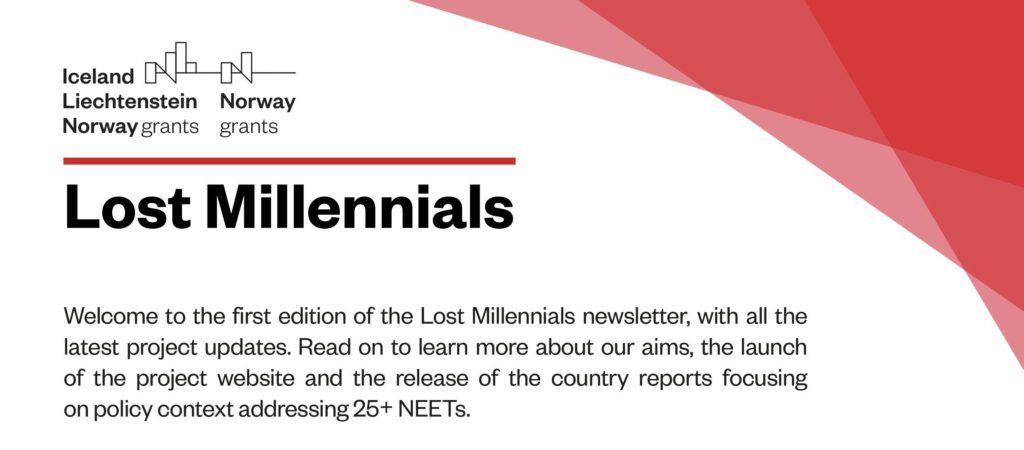
News in the Lost Millennials project
The Lost Millennials project has published a new newsletter that informs about the latest news and achievements. The “Lost Millennials” project, funded by the EEA and Norway Grants for Youth Employment, is implemented to support the work inclusion of the 25+ NEETs group (i.e., people over 25 years old who are not preparing for a future profession and are unemployed).
The newsletter reports on all consortium members’ transnational meetings in 2021 and 2022 in Bodo, Norway and Burgos, Spain. At these meetings, members could participate in workshops and training sessions on evaluation, how to evaluate initiatives and other cross-cutting topics. IREAS led a training session on an introduction to evaluation during the June meeting in Bodo, which was essential for the follow-up activities.
Then, during the summer months, a mapping of initiatives to support 25+ NEETs in each partner country was carried out under the guidance of IREAS. This was followed up during the autumn with a search for evaluations on the previously mapped initiatives. At the turn of 2022 and 2023, a “synthesis report” was conducted under the auspices of IREAS to summarise the main findings based on the mappings carried out in the member countries by each partner. This report is being finalised, with IREAS working closely with the Slovak SBA. The information on evaluation practices will be available soon.
More information about the project and other outputs from the project can be found at https://lostmillennials.eu.
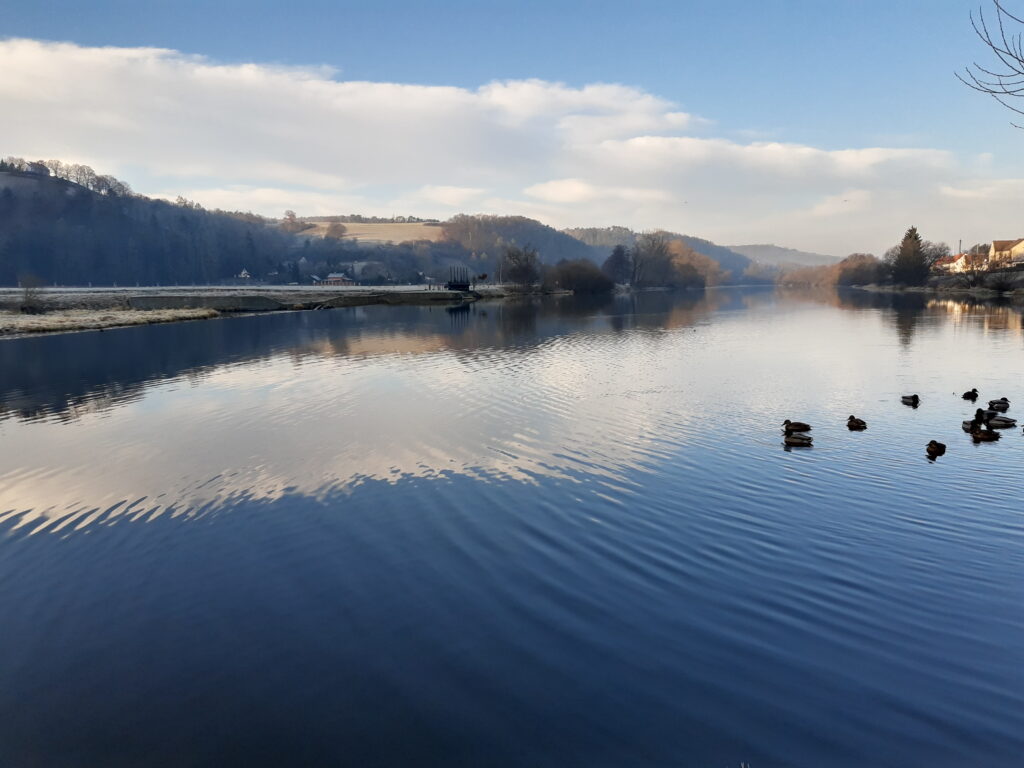
IREAS HELPS TO PREPARE CONDITIONS FOR THE IMPLEMENTATION OF THE CZECH OP FISHERIES 2021-2027
In the first half of this year, IREAS implemented two important contracts for the Czech Ministry of Agriculture, specifically for the Managing Authority of the Operational Programme Fisheries. Both contracts concern the currently crucial issues of setting eligible expenditure, their evaluation in the context of the market situation and setting financial limits. While the first project is specifically focused on the issue of recirculation facilities and also on the possibilities of future support for aquaponics (including setting the technological parameters for support), the second project focuses on all other planned measures in the aforementioned operational programme and the revision or addition of financial limits.
Specifics of both projects:
• Recirculation facilities and Aquaponics in OP Fisheries 2021-2027
The subject of the public procurement is the setting of definitions related to recirculation facilities and hatcheries (“intensive aquaculture systems”), the setting of the code of eligible expenditure for measure 2.1.3 Investments in intensive aquaculture systems of the OP Fisheries 2021-2027 (including Aquaponics) including financial limits; then the setting of minimum technical parameters of the breeding equipment so that the bids submitted under the public procurement are comparable; and finally the setting of the evaluation criteria for measure 2.1.3 Investments in intensive aquaculture systems including Aquaponics facilities.
• Financial limits of the OP Fisheries 2021-2027
The subject of the contract is the revision of the existing financial limits/sub-limits, the addition of financial limits/sub-limits and the extension of the code list with new items where appropriate. All the sub-performances concern the eligible expenditure dials and financial limits for eligible expenditure for activities 2.1.1 Innovation, 2.1.2 Investment in aquaculture and 2.2.2 Processing of OP Fisheries 2021-2027 products.
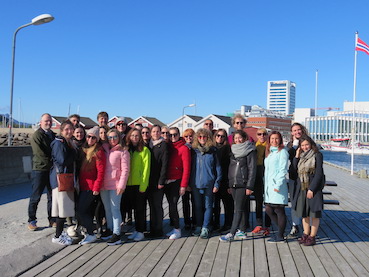
EXPEDITION BEYOND THE ARCTIC CIRCLE
The first face-to-face meeting of the partners of the international project “Lost Millennials – Transnational research network for the evaluation of initiatives targeting 25+ NEETs”, funded by Norway Grants, took place on 8 and 9 June 2022. The IREAS team travelled with other collaborators to the Arctic Circle, Bodø, Norway.
The project “Lost Millennials”, funded by the EEA and Norway Grants for Youth Employment, is implemented with the aim of promoting the work inclusion of the 25+ NEETs group (i.e., people over 25 years old who are not preparing for a future career and are not in employment).
During the two-day meeting, each of the consortium partners had the opportunity to participate in team workshops and training sessions. IREAS representatives were there to lead a one-day training session on evaluation, during which they were able to share their many years of expert experience. Among other things, there was a lively discussion on the outputs of the completed activities and planning the way forward for the project.
IREAS is now leading a sub-part of the project, the so-called “Work Package 5”, which aims to map the initiatives or programmes implemented to address the issue of 25+ NEETs across the partner countries and to evaluate them. Key findings will then be discussed during the September partnership meeting in Spain.
More information about the project can be found on the official project website, Facebook page or LinkedIn.

PROF. JIŘINA JÍLKOVÁ PASSED AWAY
We regret to announce that economist Prof. Ing. Jiřina Jílková, CSc., departed from her great academic family on 21 June 2022. IREAS had the privilege to belong to that family for many years. She adopted many of us, showed us the way and supported us in major moments of our work and private lives. She knew how to motivate us, connect us in interesting ways, and dispatch us towards more independence at the key moment. We will never stop being grateful to her for that.
It was hard to earn her respect. Once you got it, though, you could be sure of her continuous support and, to a certain extent, even protection. That empowered us to enter shaky ground and ultimately led to better results and strengthening of the whole team.
As Svatopluk Čech wrote in his poem Dosti nás, “A low aimer will aim low”. Those who knew Jiřina understand that this was not her case. Throughout her life, she aimed high, showing the way for many of us, although it was sometimes difficult to follow that path. However, it was always a path forward, promising something new, original, often controversial, but always forward. Treading water, absence of a vision, or even reactionism irritated Jiřina.
Jiřina was uncomfortably frequently right. She was a visionary and was excellent at sizing up people, their qualities and limits. Her words often sounded improbable at first, sometimes everything spoke against them, but they came true sooner or later. All the same, she never had the urge to emphasize “I told you”, even if people around her would have deserved it.
She died suddenly during a business trip in Austria, doing what she did with enthusiasm all her life: educating a new generation of young, internationally successful people, many of whom now rank among important figures of scientific and social life.
Jiřina, we will all miss you much!
IREAS team

IREAS EVALUATED THE CZECH-POLISH INTERREG PROGRAMME 2021-2027 IN THE CONTEXT OF MAINSTREAMING CLIMATE CHANGE
In April 2022, IREAS experts evaluated the forthcoming Interreg Czechia-Poland Programme 2021-2027 in terms of its setting and reflection of climate action. The evaluation is being carried out for the European Commission (DG Clima) in a framework evaluation contract coordinated by the evaluation companies COWI A/S (Denmark) and M&E Factory GmbH (Austria). IREAS centrum, Ltd. is fulfilling partial activities of this project for the Czech Republic in the form of subcontracting.
The Operational Programme (Interreg VI-A) Czech-Poland identifies the key development challenges and policy needs of cross-border cooperation, with attention given at the beginning of the document to the implications of the Covid-19 pandemic for key sectors of the economy of the cross-border regions. It then specifies new issues related to the European Green Deal strategy and relevant needs for further development. The programme foresees that scenarios may recur in the reduction of socio-economic life in society due to further pandemic waves of Covid-19 disease variants. One of the affected sectors is tourism, which has been affected by the temporary border closures in 2020 and 2021 and the anti-epidemic measures in both countries. This has resulted in an increase in unemployment and structural problems in the Czech and Polish economies. Therefore, it will be necessary to diversify the economy of the border areas (i.e. support small and medium-sized enterprises), further develop the service sector, especially in the hard-hit tourism sector. The programme’s background further emphasises the potential for economic transformation within the framework of the above-mentioned European strategy. The contribution of the evaluated border regions to the ambitious objectives will mainly be to promote biodiversity, combat pollution and move towards a circular economy. Climate change poses new challenges for cross-border crisis management measures. Overcoming historical stereotypes between the Czech and Polish communities remains a long-term priority of the programme.
The evaluation provided a number of partial recommendations for refining or even complementing the intervention areas, as the individual specific objectives describe the measures with varying degrees of detail. Despite the clear specificities of the programme in its focus, it was recommended to reinforce some climate expenditure, e.g. to support climate-neutral tourism models in the context of climate action options (e.g. eco-innovations, environmentally friendly technologies in tourism, or activities focusing on forms of digitisation of transport linked to the reduction of greenhouse gas emissions).
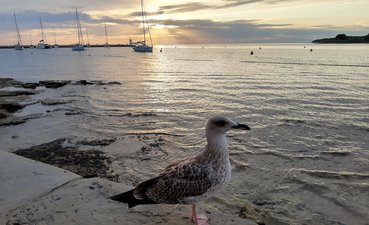
IREAS evaluated the Croatian Competitiveness and Cohesion Programme 2021-2027 in the context of mainstreaming climate change
IREAS experts evaluated the forthcoming Competitiveness and Cohesion Programme 2021-2027 at the end of November and beginning of December 2021 in terms of its setting and reflection of climate action. The main reason for this evaluation by the Czech experts was the workload of the national evaluators in Croatia in evaluating other programmes for the new period. IREAS experts agreed to provide exceptional assistance in this evaluation, which is being carried out for the European Commission (DG Clima) in a framework evaluation contract coordinated by the evaluation companies COWI A/S (Denmark) and Metis GmbH (Austria). IREAS centrum, s.r.o. is fulfilling partial activities of this project for the Czech Republic in the form of subcontracting, however, it can also assist other EU Member States with its evaluation capacities.
The main objective of the programme is to strengthen the economy through digital and green transition, digitise public administration, improve connectivity and mobility throughout the Republic of Croatia and enhance the quality of life of the population. Socio-economic development and environmental protection in Croatia are significantly addressed by EU funds. The COVID-19 pandemic and two devastating earthquakes have significantly changed the pace of economic recovery after the Great Depression and led to a recession in 2020. The pandemic has clearly shown the lack of diversification of the economy and the predominance of low-productivity sectors, making the economy particularly vulnerable to external shocks. The structure of the economy is characterised by a significant share of services and a dependence on tourism, which have suffered heavily from the impact of the COVID-19 pandemic. Given the relatively weak public finances and the need to tackle public debt, there is great potential for the use of EU funds.
The programme is very complex and consists of a total of 19 specific objectives, 9 of which have clearly defined climate spending. The programme as a whole is well aligned in its specific objectives and is also balanced in terms of the financial allocations set. However, the evaluation made a number of partial recommendations for the addition of intervention areas, as the individual specific objectives describe a number of measures with varying degrees of detail, but some of them are not sufficiently covered by climate relevant intervention areas.
Mainstreaming of climate change mitigation and adaptation in European Regional Development Fund and Cohesion Fund Programmes 2021-2027 Lot 1 (Contract number: CLIMA.A.3/C.3.C.1/SER/2019/0014)
Contracting authority: European Commission
Implementer: COWI A / S (Denmark); Metis GmbH (Austria), IREAS centrum, s. r. o. fulfills partial activities of this project for the Czech Republic in the form of subcontracting.
Contact: Assoc. Prof. Martin Pelucha (pelucha@ireas.cz)
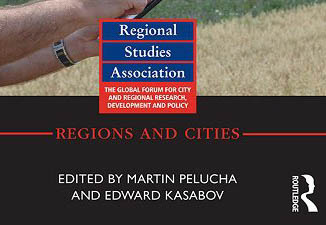
MONOGRAPH ON RURAL DEVELOPMENT IN THE CONTEXT OF DIGITALIZATION WINS RECTOR’S AWARD OF PRAGUE UNIVERSITY OF ECONOMICS AND BUSINESS
A highly respected member of the Evaluation and Regional Policy team, Assoc. Prof. Ing. Martin Pělucha, Ph.D., won the Rector’s Award of the Prague University of Economics and Business for a prestigious publication on 2 February 2021 at a meeting of the Scientific Board.
The publication is entitled “Rural Development in the Digital Age: Exploring Neo-Productivist EU Rural Policy” and was compiled by Assoc. Prof. Martin Pělucha and Prof. Edward Kasabov, while two sub-chapters were prepared by RNDr. Jana Kourilova, Ph.D. and also by Prof. RNDr. René Wokoun, CSc. In 2020, other monographs of academic staff of the Prague University of Economics and Business published in foreign publishing houses (Routledge and Palgrave Macmillan) were evaluated as a part of this award. In the context of renowned foreign publishing houses, the above publication took first place in this competition. (Results of the evaluation HERE).
The book “Rural Development in the Digital Age: Exploring Neo-productivist EU Rural Policy” was published by the British publishing house Routledge and focuses on the theoretical and practical context of EU rural development policy in the period 4.0. The publication is intended not only for researchers and policy makers in the field of rural policy, regional studies, economic geography and EU policy, but also for advanced students, especially for those of doctoral study programmes. You can order it here.
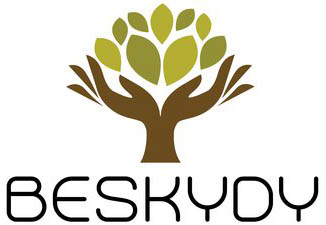
BESKYDY
The IREAS team has successfully completed the cross-border Czech-Slovak project BESKYDY. Over the past years, we were working on the restoration of biodiversity and ecosystem services of the Beskydy forests, which are threatened by climate change. In the project, we investigated not only the perception of risks associated with climate change by local governments, residents, entrepreneurs and other organizations, but also the perception of individual benefits of forest stands. Based on these findings, we proposed the most appropriate adaptation measures and steps to mitigate the impacts of climate change. These actions were directed not only towards sustainable forest management and water management in forests, but also towards the support of biodiversity and ways to protect valuable natural sites. Designing institutional arrangements for cooperation among key actors was also an integral part of this. In the project, together with our partners from CzechGlob and NLZ Zvolen, we also developed a web-map application which, through interactive simulations, enables plotting expected climate development in the Beskydy area in the coming decades and its impacts on forests in this transboundary area. The application Beskydy Forests and Climate Change provides forecasts of future development of climate, biodiversity, forests and ecosystem services for the period 2020-2080. The application can also simulate the estimated impacts of climate change on species composition, carbon accumulation, biodiversity, aesthetic and economic value of the forest for four alternative ways of forest management and two different climate development scenarios considered.
The NLC colleagues also developed a pilot project for the transformation of the same-aged spruce forest to a different-aged quasi-natural forest at the Velký Polom project. The aim of the pilot project is to practically demonstrate the most progressive ways of forest adaptation to climate change. You can find more about the cross-border project funded by INTERREG V-A SK-CZ 2014-2020 on our project website at this link.
